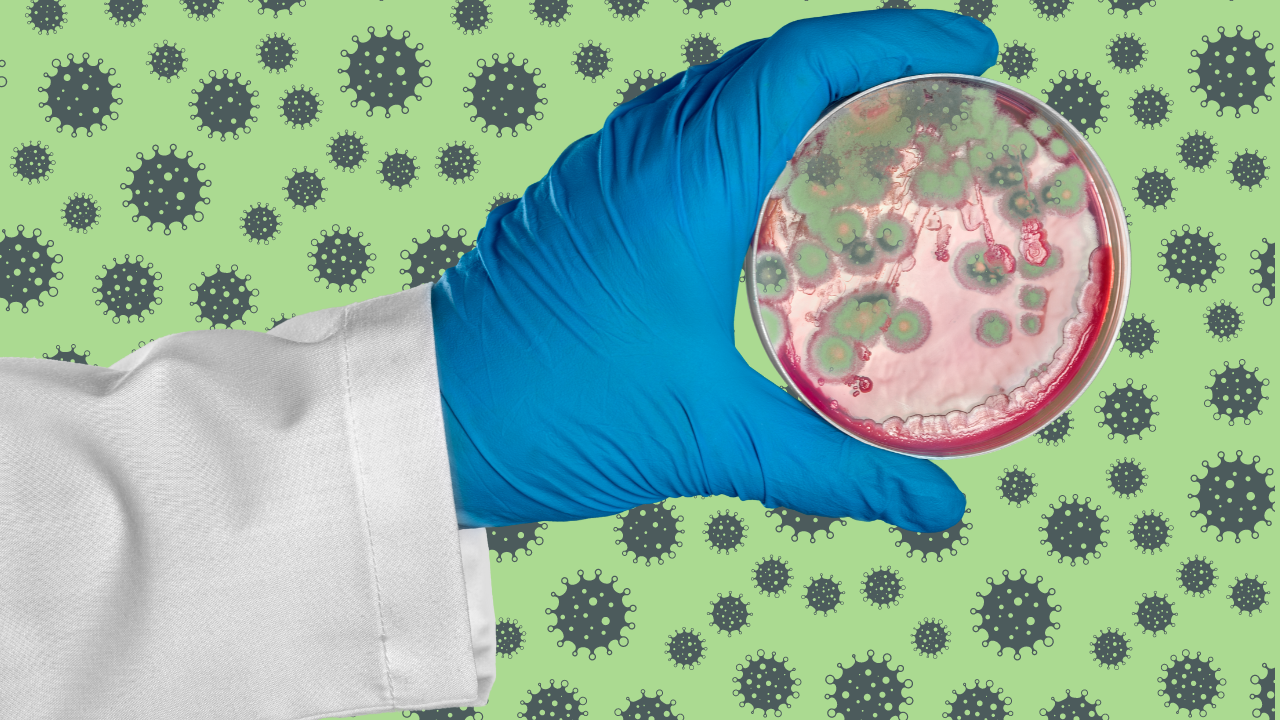
The Hidden Menace: Unraveling the Impact of Mycotoxins on Human Health
Aug 03, 2023By Jennifer Engels, MD
It’s possible you’ve never encountered the word “mycotoxins” before and are unaware of the threat they can pose to your health. So, I think a good way to begin is to give a brief explanation of what mycotoxins are, what harmful effects they can have on your health, and some of the ways you can protect yourself against them.
What are Mycotoxins?
Mycotoxins are toxic compounds produced by certain types of molds that can have adverse effects on human health. The molds that commonly produce mycotoxins include Aspergillus, Penicillium, and Stachybotrys (commonly known as black mold).
These molds are commonly found in damp and humid environments, such as poorly ventilated buildings, basements, and areas affected by water damage or flooding, and when you’re exposed to mycotoxins through ingestion, inhalation, or skin contact, you can experience various health problems.
Health Effects of Exposure to Mycotoxins
The following are some of the negative effects you might suffer after exposure to mycotoxins.
- Respiratory Issues: Inhalation of mycotoxin-contaminated mold spores can lead to respiratory problems, including allergies, asthma, bronchitis, and other respiratory infections.
- Allergic Reactions: Some people may develop allergic responses, such as sneezing, runny nose, itchy eyes, skin rashes, and irritation, upon exposure to mycotoxins.
- Neurological Effects: Mycotoxins can potentially impact the central nervous system, leading to symptoms like headaches, dizziness, fatigue, and difficulty concentrating.
- Immune System Suppression: Prolonged exposure to mycotoxins may weaken the immune system, making individuals more susceptible to infections and illnesses.
- Digestive Issues: Ingesting food contaminated with mycotoxins can cause gastrointestinal problems, such as nausea, vomiting, and abdominal pain.
- Skin Irritation: Direct contact with mold or mycotoxin-contaminated surfaces may lead to skin irritation and allergic reactions.
Protecting Against Mycotoxin Exposure
The good news in all this is that there are many steps you can take on a daily and weekly basis to protect yourself and your family against the health threat posed by mycotoxins.
- Identify and Address Water Damage: Regularly inspect your living and working spaces for signs of water damage, leaks, and dampness. Address any issues promptly to prevent mold growth.
- Control Humidity Levels: Use dehumidifiers in areas prone to high humidity, such as basements and bathrooms. Try to keep indoor humidity levels between 30% and 50% to discourage mold growth.
- Improve Ventilation: Ensure proper ventilation in your home or workplace to reduce moisture buildup and promote air circulation.
- Use Mold-Resistant Products: Consider using mold-resistant building materials and paints, especially in areas susceptible to moisture.
- Dry Wet Materials Quickly: If items like carpets, upholstery, or clothes get wet, dry them thoroughly within 24-48 hours to prevent mold growth.
- Practice Regular Cleaning: Clean and vacuum your living spaces regularly to remove mold spores and prevent their accumulation.
- Inspect Food for Mold: Check food items for any visible mold growth and discard affected portions or items to avoid mycotoxin ingestion.
- Use Protective Gear: When dealing with mold-contaminated areas or materials, wear protective gear like gloves, masks, and goggles to minimize direct contact and inhalation of spores.
- Seek Professional Assistance: If you suspect a significant mold problem or extensive contamination, consider consulting a professional mold remediation service to remove the mold safely.
- Improve Personal Health: A robust immune system can better defend against the effects of mycotoxins. Eat a balanced diet, exercise regularly, and maintain a healthy lifestyle.
To sum up, mycotoxins from mold can have various negative impacts on your health, but by taking preventive measures and being proactive in addressing mold issues, you can significantly reduce the risk of mycotoxin exposure and protect your well-being.
Help is Available at WeCare Frisco
On the other hand, if you or a family member are experiencing persistent health issues related to mold exposure, you should consult a healthcare professional for proper evaluation and treatment.
As a medical doctor practicing functional medicine, I understand the significance of mycotoxins, and when treating patients suffering from health issues caused by exposure to mycotoxins, a comprehensive, holistic approach is necessary.
Here are some steps involved in the treatment process:
- Patient Evaluation: The first step is to conduct a thorough patient evaluation, including a detailed medical history, symptom analysis, and possible exposure history. This process may also involve performing relevant tests to assess the levels of mycotoxins in the patient's body.
- Environmental Assessment: Identifying and mitigating the source of mold exposure is crucial to prevent further contamination and improve the patient's health. This may involve a thorough inspection of the patient's living and working environments to identify areas with mold growth or high humidity levels.
- Detoxification Support: Supporting the body's natural detoxification processes is vital in eliminating mycotoxins from the system. This may involve personalized nutrition plans, hydration, and supplementation with specific nutrients and antioxidants.
- Immune System Support: Mycotoxin exposure can weaken the immune system. Strengthening the immune system through appropriate diet, supplements, and lifestyle changes can help the body better cope with mycotoxin exposure.
- Gut Health Restoration: Mycotoxins can disrupt the gut microbiome, leading to gastrointestinal issues. Restoring gut health through probiotics, prebiotics, and gut-healing protocols is often beneficial.
- Symptom-Specific Treatment: Depending on the patient's symptoms and medical history, additional treatments may be necessary to address specific health issues. This could include addressing respiratory problems, neurological symptoms, and skin conditions through targeted interventions.
- Avoidance of Mold Exposure: Patients need to be educated about ways to minimize future mold exposure to prevent further health complications. This may involve lifestyle changes, such as using air purifiers, reducing humidity levels, and avoiding mold-prone environments.
- Follow-Up and Monitoring: Regular follow-up appointments and monitoring are essential to track the patient's progress and adjust the treatment plan as needed.
It’s important to note that the treatment approach may vary from patient to patient, as individual responses to mycotoxins can differ significantly. As a functional medicine practitioner, my goal is to address the root causes of the patient's health issues and provide personalized, holistic care to promote overall well-being.
At WeCare Frisco new patients are always welcome, and if you think you or a loved one are suffering from the effects of mold exposure, we urge you to contact us as soon as possible to schedule a free Discovery Call.



